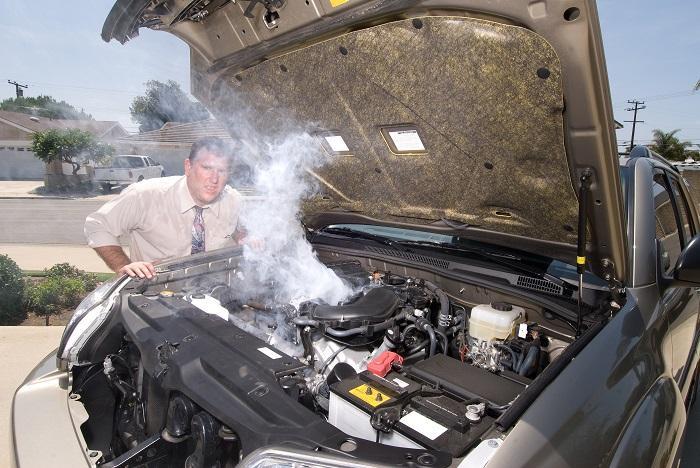If you use water instead of coolant in your engine, it is likely to cause problems. The main issue with using water instead of coolant is that water has a lower boiling point than the recommended coolant and will evaporate much faster. This can lead to overheating as well as inefficient cooling, which can damage the vehicle’s engine components due to increased friction and wear on parts.
Additionally, if there are any leaks or cracks in the radiator or hoses leading from it, these may not be sealed properly by just using water alone and could result in further damages such as rusting along with an increase in pressure build-up inside the system.
If you use water instead of coolant in your vehicle, it can have serious and potentially damaging consequences. Water does not contain the same chemicals as antifreeze that help to lubricate the radiator and other components within the cooling system. Without these lubricants, metal parts may corrode or overheat leading to engine failure.
Additionally, if temperatures drop below freezing point, water expands with ice forming inside the engine block resulting in further damage. Ultimately using water instead of coolant could end up costing you more money in repairs than if you had used a high quality coolant in the first place!
Disadvantages of Using Water As Coolant
One of the main disadvantages of using water as a coolant is that it doesn’t have the same cooling capacity as other fluids, such as antifreeze. This means that in order to achieve optimal cooling performance, additional components may need to be added to the system, which can reduce efficiency and increase costs. Additionally, water has poor heat transfer properties when compared to other coolants, resulting in less efficient heat dissipation from engines and components.
Finally, water is susceptible to freezing or boiling at certain temperatures; thus a suitable control system must be used with any engine utilizing this type of coolant.

Credit: www.linquip.com
Is It Ok to Just Put Water Instead of Coolant?
No, it is not okay to put water instead of coolant into a vehicle. Coolant is specially designed to keep the engine at a safe temperature and also prevent corrosion within the cooling system. Water can corrode parts of the cooling system such as:
• Radiator hoses
• Heater core
• Engine components like cylinder heads and blocks
In addition, water does not have the same properties as coolants when it comes to keeping the engine cooled down. Therefore, using only water will cause an inefficient cooling process that could lead to possible damage in your car’s engine and other parts.
What Can I Use If I Don’T Have Coolant?
If you don’t have coolant, there are several alternatives that can be used in its place:
* Water – If the engine is running hot and needs to be cooled down, plain water is an effective solution.
* Oil – Adding oil to the radiator can help lubricate some of the parts and may temporarily relieve overheating.
* Distilled white vinegar – This acidic liquid helps remove deposits from the cooling system and may prevent corrosion.
Each option has its pros and cons, so it’s important to consider your particular situation before choosing one of these alternatives for use instead of coolant.
What Happens If You Just Put Water in Your Radiator?
If you just put water in your radiator, it can cause serious damage to the engine. Here are some of the risks:
• Corrosion and rusting due to lack of antifreeze protection.
• Overheating due to inadequate coolant capabilities.
• Damage to cooling system components such as hoses, belts, seals and gaskets. Ultimately this could lead to costly repairs or even complete engine failure if not addressed in time.
Can You Drive a Car With Just Water in the Radiator?
No, you cannot drive a car with just water in the radiator. The car needs a mixture of coolant and water to properly function:
• Coolant is necessary for maintaining engine temperature.
• It helps prevent corrosion and rusting inside the engine that can cause major damage.
• Coolant also contains lubricants which help keep moving parts such as pistons running smoothly.
Without coolant, your engine would overheat quickly and suffer significant long-term damage.
What Happens If You Put Water Instead Of Coolant In Your Car! #subscribe #experiment #learn #car
Conclusion
In conclusion, it is important to understand that water should never be used as a substitute for coolant in an automobile. While the initial cost of purchasing coolant may seem high, using water instead can lead to costly repairs and even engine damage. Water simply does not provide the necessary protection from corrosion or freezing temperatures that an approved antifreeze solution does.
Therefore, it is essential to use only properly rated coolants when servicing your vehicle’s cooling system.
